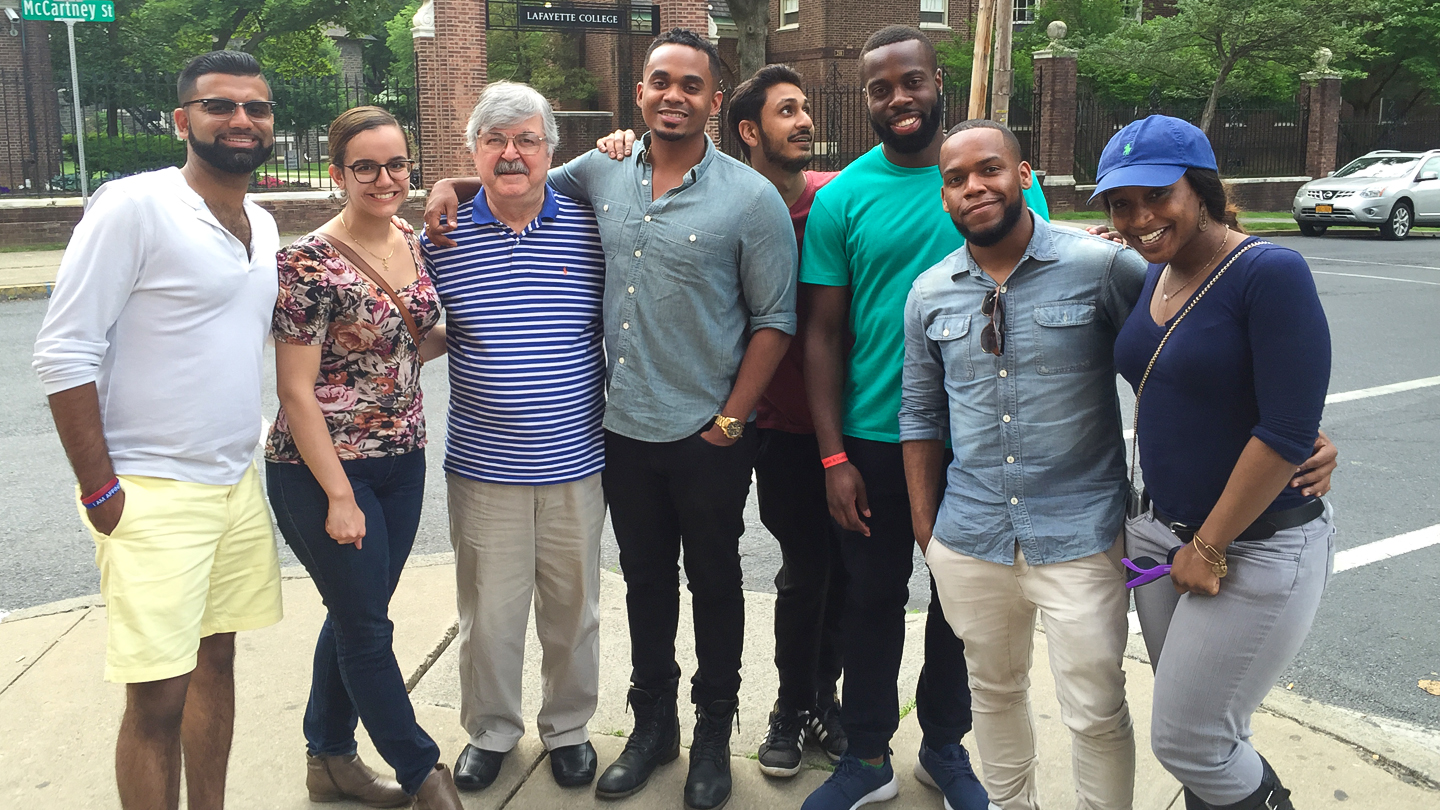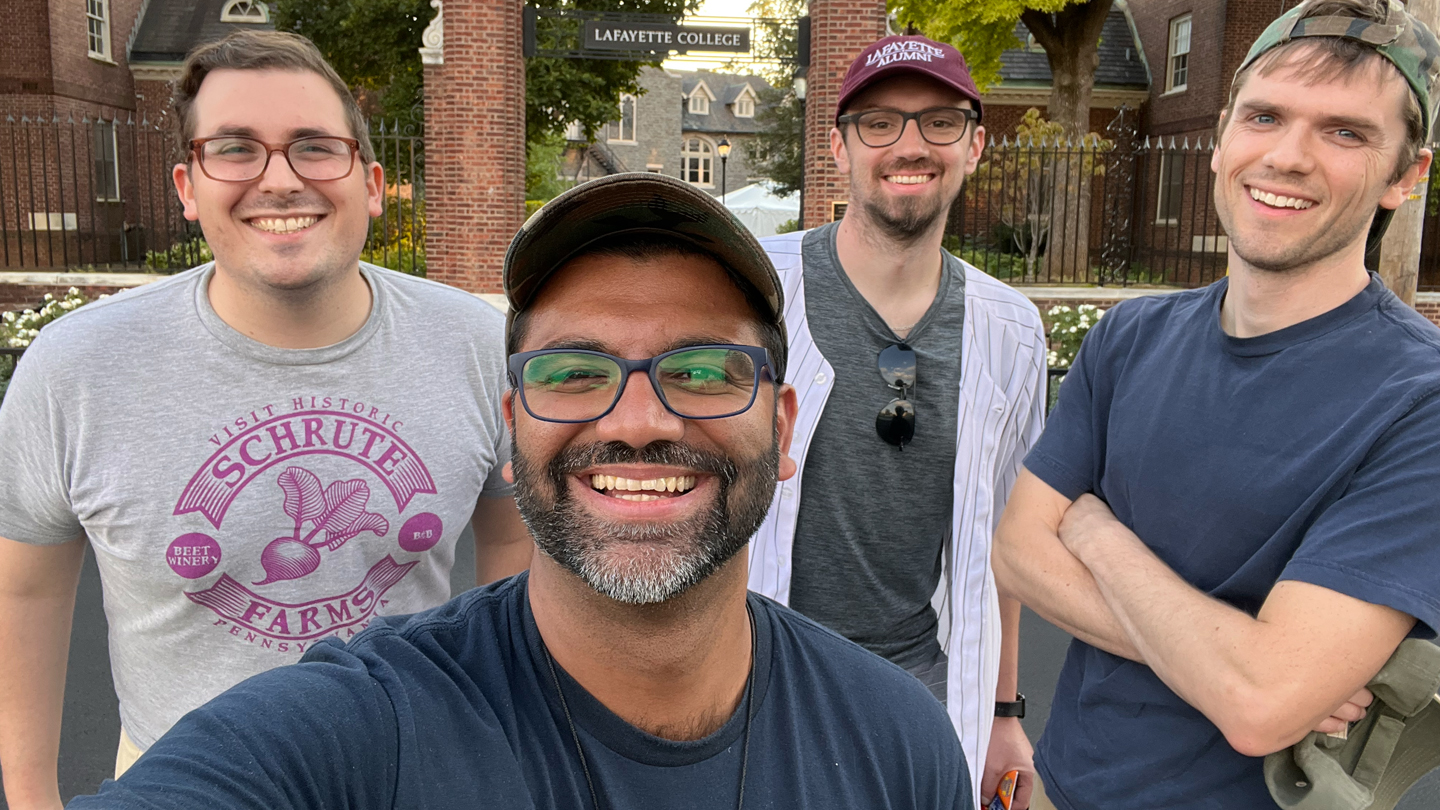Advocating for educational equity
By Madeline Marriott ’24
Taaha Mohamedali ’11 can divide his life into two parts: before and after the second week of his first year at Lafayette.
It was then that he learned his family’s secret. The person he knew as his sister was actually his biological mother.
Mohamedali turned to his mentor, former English professor Ian Smith, to come to terms with his new reality, and it changed the trajectory of his life.
“I just had this whole deeper reflective experience and realized how many adverse childhood experiences are out there and how many open secrets are out there, and I wanted to be in a position to help young people work through their trauma the way that Prof. Smith helped me get through mine,” he says.
At the same time, Mohamedali was engaged in conversations about education equity as a Posse Scholar. He recalls one such conversation with Shirley Collado, who served as vice president for institutional planning and community engagement, that catalyzed his interest in the topic.

Taaha Mohamedali ’11 (far left) is pictured with classmates from New York Posse 6 from left: Washcarina Martinez ’11, Professor Javod Tavakoli (Retired Posse Mentor), Shariff Dean ’11, Mark Singh ’11, Kareem Clarke ’11, Zurisidai Roberts ’11, and Krysta Battersby ’11.
“There was one night where she had Posse Scholars over for dinner, and she and I just talked about affirmative action for over an hour,” he says. “That was one of those milestone moments that got me excited about doing this equity work—it really sparked my interest.”
He returned to Lafayette after graduation and put his passion to use in the Office of Admissions, where he worked as an admissions counselor and managed the office’s diversity recruitment efforts. During his five-year tenure, the percentage of students of color on campus increased from 12% to 29%, and he was integral in the creation of the Social Justice Symposium and the revamping of Prologue, an overnight event on campus that connects admitted students to Lafayette students, faculty, and staff whose identities match their own.

Taaha Mohamedali ’11 at Lafayette in 2015 when he was an Admissions Counselor for the College.
“We did a lot of good things during my time there, but I realized we had so many incredible young people of color coming to campus for a community that wasn’t truly prepared or designed to support those young people,” Mohamedali explains. “That’s when I decided to get my master’s in higher education.”
Mohamedali attended Harvard University’s Graduate School of Education beginning in 2016 and focused his studies on transitional support for marginalized students of color.
He then moved to Chicago to work as the director of college exposure and partnerships for The Academy Group, an organization that seeks to “create a pipeline to get kids from the most resilient areas in Chicago to executive suites.”
In his three years with The Academy Group, Mohamedali worked on developing the program’s college-level infrastructure and counseling strategy, and boasted a 90% graduation success rate among involved students.
He then transitioned to a role at Crown Family Philanthropies, a nonprofit focused on improving college counseling in Chicago’s public school system through a case study of five high schools, before returning to the East Coast to work as director of education initiatives at College Track.

From left: Jon Martin ’11, Taaha Mohamedali ’11, Adam Houser ’11, and Conner Woods ’11 are pictured at Lafayette in August 2022 after celebrating Adam Houser’s birthday at Yankee Stadium followed by a trip to campus. Adam passed away on June 11, 2023, and continues to be dearly missed.
There, he directed the implementation of the company’s 10-year program to help scholars confront systemic challenges and become the first in their families to earn bachelor’s degrees.
For his next role, Mohamedali is on the lookout for something that addresses the underlying causes of educational inequity in the United States.
“There are so many factors that interact with education, and if you really want to attack the issues that are at the root, you need to make sure the rest of the conditions are in a decent enough place where the person can actually learn,” he says. “What I’m looking for is an organization that is still primarily doing the education work, but is completely open to the wraparound support necessary for a young person to thrive, even if it means taking a few side steps from what the typical company plan is.”
In a time when debate around diversity, equity, and inclusion has reentered the zeitgeist, Mohamedali’s philosophy remains simple: “Talent is ubiquitous and opportunity is not.”
“In the work I’ve done, I’ve met incredibly brilliant young people who will never receive the opportunities I’ve been afforded, and that’s just really unfortunate,” he says. “When you have a young person who’s able to persevere through trauma, there’s a different degree of resilience that can translate into the workforce. There’s a real opportunity to improve our economy when we lean into understanding how inequity does affect the system, but I think this is something that will take more time to get everyone in this country to appreciate.”